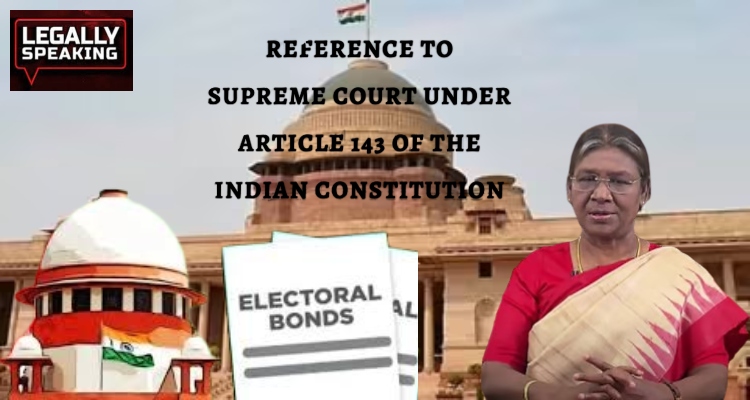
All India Bar Association President Adish Aggarwala has written a letter to President Draupadi Murmu on the cancellation of the Electoral Bond Scheme by the Supreme Court, demanding to activate the powers of Article 143 and bring a Presidential Reference on this issue.
Adish Aggarwala writes that the Supreme Court’s historic judgment of February 15, 2024, canceling the electoral bond scheme of the Government of India has important implications. The court not only struck down the scheme but also directed State Bank of India to submit corporate contribution details to political parties by March 6, 2024. Additionally, the Election Commission of India has been directed to disclose this information publicly.
On March 11, 2024, State Bank of India requested an extension till June 30, 2024, citing complexity of the process. However, the Hon’ble Supreme Court rejected this petition, and ordered the Bank to disclose the information by March 12, 2024, so as to facilitate public disclosure to the Election Commission of India by March 15, 2024.
All India Bar Association President Adish Aggarwala has written that it is my responsibility towards the Supreme Court of India and the Constitution to present these facts and advocate for a Presidential reference in relation to the electoral bond case. This will allow for a comprehensive re-evaluation of the proceedings, thereby ensuring justice for the Parliament of India, political parties, corporations and the general public.
Adish Aggarwala has told in this letter that four writ petitions have been filed against the Electoral Bond Scheme. Who opposed the constitutional validity of the electoral bond scheme under Article 32 of the Constitution. He has also challenged the provisions of the Finance Act, 2017.
In a comprehensive 232-page judgment after extensive arguments on these petitions, a bench led by the Chief Justice of India declared the electoral bonds illegal.
The AIBA President wrote that the purpose of the electoral bond scheme was to address the absence of a formal election funding mechanism, enabling legal fundraising by political parties. Its implementation was governed by amendments in various laws through the Finance Act, 2017.
He urged the President that it is unjust to penalize legislative undertakings for complying with legitimate legal provisions. Furthermore, any court decision should be applied only prospectively, and not retroactively, as emphasized by constitutional principles and previous judicial precedents.
Making his argument more clear, he wrote that directing political parties to disclose donor details poses risks to both corporate entities and democratic processes. Corporations making donations through electoral bonds with the expectation of confidentiality may have to face consequences if their identities are revealed. Such disclosure could hamper future corporate participation in the democratic process and harm India’s international reputation.
Article 143 of the Constitution confers advisory jurisdiction on the Supreme Court, allowing it to consult the President on matters of public importance. Therefore, I urge you to take a Presidential reference on the electoral bond matter and suspend the implementation of the Supreme Court judgment until the reference is resolved.




